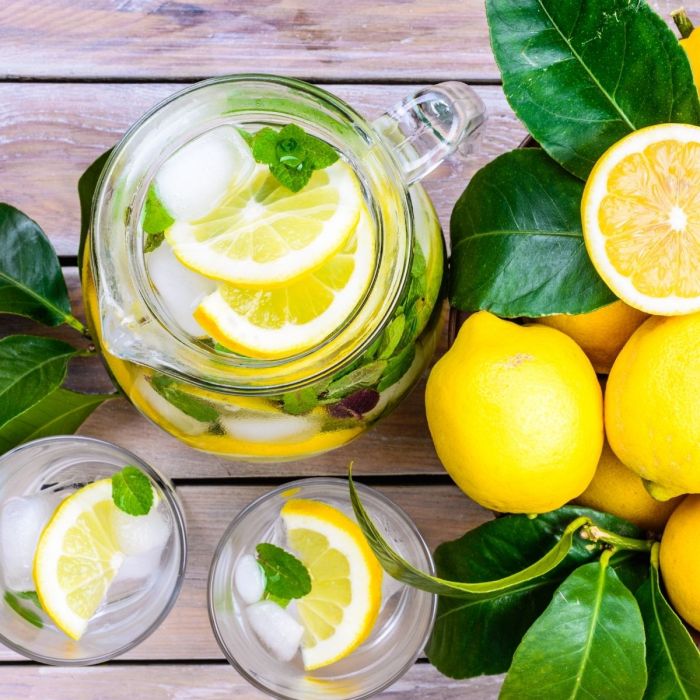Which Plants Like Lemon Water?
Lemon Water and Plant Health: A Comprehensive Guide: Which Plants Like Lemon Water
Which plants like lemon water – The use of lemon water as a plant fertilizer or watering solution is a topic of much debate among gardening enthusiasts. While some believe it offers benefits, others caution against its potential harm. This article delves into the effects of lemon water on various plants, exploring its potential advantages and disadvantages, and providing guidance on safe and effective watering practices.
Plant Preferences and Lemon Water

Source: gardeningleaf.com
Lemon water, due to its acidity, can offer some benefits and drawbacks to plant health. The citric acid in lemon juice can act as a chelating agent, improving the availability of certain minerals in the soil. However, excessive acidity can severely damage plant roots and disrupt nutrient uptake.
The following table lists some plants that
-might* tolerate diluted lemon water. Note that tolerance varies significantly based on plant species, soil type, and concentration of lemon water. Always start with highly diluted solutions and observe the plant’s reaction carefully.
While many plants tolerate slightly acidic water, few thrive specifically on lemon water. The acidity might benefit some, but for truly hydroponic growth, you need to consider which plants can even survive solely in water. To explore that, check out this resource on what plants can grow in water only. Understanding this helps determine if lemon water’s acidity is beneficial or detrimental to a plant’s water-only existence.
| Plant Name | Common Name | Tolerance Level | Notes |
|---|---|---|---|
| Citrus limon | Lemon Tree | High (but requires careful monitoring) | Naturally thrives in slightly acidic conditions. |
| Hydrangea macrophylla | Bigleaf Hydrangea | Medium | Known for preferring slightly acidic soil. |
| Azalea | Azalea | Medium | Prefers acidic soil conditions. |
| Rhododendron | Rhododendron | Medium | Similar to Azaleas, prefers acidic soil. |
Acidity and Plant Health, Which plants like lemon water
The pH level of soil and water significantly impacts plant health. Different plants have varying pH preferences. Most houseplants thrive in a slightly acidic to neutral pH range (6.0-7.0). Lemon water, with a pH typically around 2.0-3.0, is significantly more acidic than the ideal range for many plants. This high acidity can disrupt the delicate balance of soil microorganisms, hindering nutrient absorption.
The soil’s composition plays a crucial role in how it interacts with the acidity of lemon water. Soils with high buffering capacity (ability to resist changes in pH) will mitigate the impact of acidic water more effectively than those with low buffering capacity. Clay soils, for instance, tend to have higher buffering capacity than sandy soils.
Experimental Methods: Testing Lemon Water on Plants
A controlled experiment can effectively assess the effects of lemon water on plant growth. This requires establishing control groups and carefully measuring plant growth over time.
- Hypothesis: Different concentrations of lemon water will affect plant growth differently.
- Materials: Identical plants (e.g., spider plants), pots, potting mix, distilled water, lemon juice, measuring tools, and a growth chart.
- Procedure: Divide plants into four groups: a control group (distilled water), and three experimental groups receiving varying dilutions of lemon water (e.g., 1:10, 1:20, 1:50 ratios of lemon juice to water).
- Data Collection: Measure plant height, leaf count, and overall health weekly. Note any visual changes (chlorosis, wilting).
- Growth Measurement: Record height using a ruler. Leaf count should be consistent, noting any loss or damage. Take photographs for visual comparison.
Specific Plant Responses
Three common houseplants show varying responses to acidic conditions. Spider plants are relatively tolerant, while peace lilies and pothos show greater sensitivity.
- Spider Plant (Chlorophytum comosum): May exhibit minor leaf discoloration with high concentrations but generally shows good tolerance.
- Peace Lily (Spathiphyllum): More sensitive to acidic conditions, potentially exhibiting leaf yellowing and wilting.
- Pothos (Epipremnum aureum): Similar to peace lilies, susceptible to leaf damage from excessive acidity.
Determining negative effects involves careful observation of leaf color changes (yellowing, browning), wilting, stunted growth, and root rot. Root systems damaged by acidity will appear brown, mushy, and lack healthy white root tips.
Alternative Watering Methods
Several alternative watering methods can improve plant health. Rainwater, tap water, and filtered water all have varying mineral compositions and pH levels.
- Rainwater: Generally soft and slightly acidic, often considered ideal for many plants. However, air pollution can affect its quality.
- Tap Water: Varies greatly in mineral content and pH depending on location. High mineral content can lead to salt buildup in the soil.
- Filtered Water: Removes impurities but may also remove beneficial minerals. The pH should be checked before use.
The following table summarizes the potential impacts:
- Rainwater: Generally low mineral content, slightly acidic pH. Good for most plants but susceptible to pollution.
- Tap Water: Variable mineral content and pH. High mineral content can lead to salt buildup. Chlorination can be harmful to some plants.
- Filtered Water: Low mineral content, pH can vary. May lack essential minerals for optimal growth.
Visual Representation of Plant Health

Source: lifexperimentblog.com
Healthy plants exhibit vibrant green leaves, firm texture, and consistent growth patterns. Unhealthy plants may show yellowing or browning leaves, wilting, stunted growth, and leaf drop. Plants stressed by acidic water may exhibit chlorosis (yellowing) due to nutrient deficiencies, and leaf margins may become brown and crispy.
Healthy root systems are white or light-colored, firm, and have numerous fine root hairs. Roots damaged by acidity will be brown, mushy, and may have a foul odor. The root tips will appear damaged and dark.
Question Bank
Can I use lemon water on all plants?
No. Most plants prefer a neutral to slightly acidic pH. Lemon water is too acidic for many common houseplants.
How much lemon juice should I add to water for plants?
Start with a highly diluted solution – a tiny amount of lemon juice in a large volume of water. Never use undiluted lemon juice.
What are the signs of over-acidification in plants?
Yellowing or browning leaves, stunted growth, and wilting are common signs of over-acidification. Root damage can also occur.
What if my tap water is already acidic?
Test your tap water’s pH. If it’s already acidic, avoid using lemon water. Consider using rainwater or filtered water instead.




















